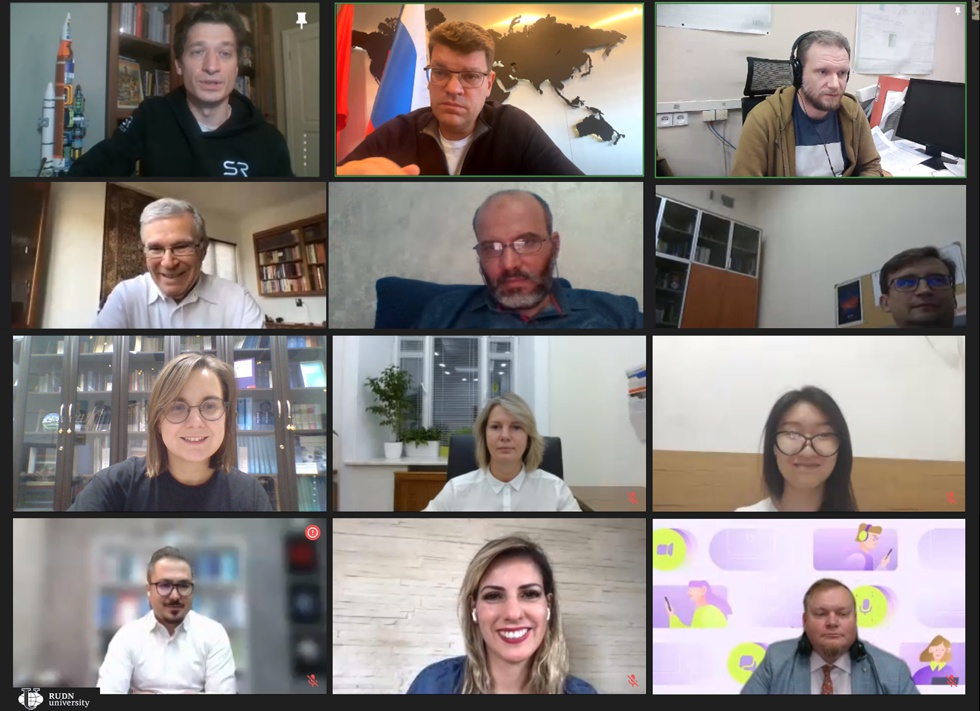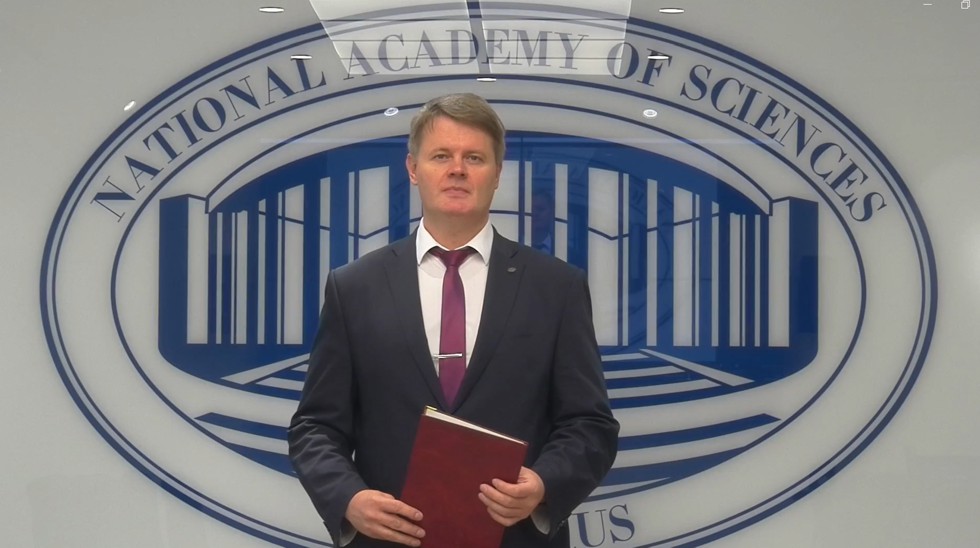RUDN University Space Week 2024: Outcomes
The World Space Week 2024 was dedicated to the interconnection of space with the climate change problem, that is why all the days of RUDN University Space Week were related to the main theme.
Within the framework of the 4th day of RUDN University Space Week the organizers announced a competition among students for the best question for the speakers. The prize was two volumes of the Russian-language Cologne Commentary on Space Law. As a result of the selection, it was decided to recognize Evgeny Tatarchenko (MSU) and Danila Zaryugin (RUDN University).
RUDN Space Week was organized by the Centre for International Space Law named after Gennadiy Zhukov at the Department of International Law of the Law Institute (RUDN University)
In total 343 people representing 44 countries took part in RUDN University Space Week for 4 days. See the detailed program and the list of countries below.
- October 7: Plenary Session.
- October 8: Satellite Technology & Earth Observation: Experience of Russian Federation
- October 9: Future Impact of Space Technologies for Climate Change and Space Environment
- October 10: Legal and Political Aspects of Space Exploration in the Context of Climate Change
Special words of gratitude are dedicated to our partners – Intersputnik International Organization of Space Communications and the Institute of Space Research of the Russian Academy of Sciences for their support and cooperation.
The event would not have taken place without professional moderators:
- Prof. Dr. Aslan Abashidze (Russia) – Head of the Department of International Law at RUDN University, Honored Scientist of the Russian Federation, Honored Lawyer of the Russian Federation;
- Ms Elina Morozova (Intersputnik) – Executive Director of the Intersputnik International Organization for Space Communications;
- Dr. Andrey Sadovsky (Russia) – Scientific Secretary of the Space Research Institute of the Russian Academy of Sciences;
- Dr. Irina Chernykh (Russia) – Associate Professor of the Department of International Law at RUDN University.
Translators of the Department of International Law at RUDN University – assistants Milica Popovic (Serbia) and Pavel Baryshkov (Russia) did a great job, too! Thank you for your hard work!
* Abkhazia, Algeria, Angola, Australia, Azerbaijan, Belarus, Brazil, United Kingdom, Gambia, Egypt, Georgia, Ghana, Greece, India, Indonesia, Iran, Iraq, Jordan, Kazakhstan, Kyrgyzstan, China, Colombia, Congo, Ecuador, Eritrea, Ethiopia, France, Nicaragua, Nigeria, Oman, Pakistan, Paraguay, Peru, Russia, Serbia, South Africa, South Sudan, Syria, Turkey, Turkmenistan, USA, Uzbekistan, Vietnam, Zambia
The RUDN Prize for Scientific Achievements in Chemistry for 2025, with a monetary award of 2 million rubles, was awarded to Alexander Davidovich Dilman, Deputy Director of the N.D. Zelinsky Institute of Organic Chemistry of the Russian Academy of Sciences. The researcher received the award during the celebration marking RUDN’s 66th anniversary.
Sergey Ivanov, a scholar from St. Petersburg, has been named the first winner of RUDN University’s International Prize for Scientific Achievements in Mathematics, worth 5 million rubles.
Products derived from microalgae represent a cutting-edge development in the field of bioeconomy. The potential of this biological resource was discussed at the international research seminar “Foundations for a Green Sustainable Energy”, part of the BRICS Network University’s thematic group on “Energy”. The event was organized by the Institute of Ecology at RUDN University.


